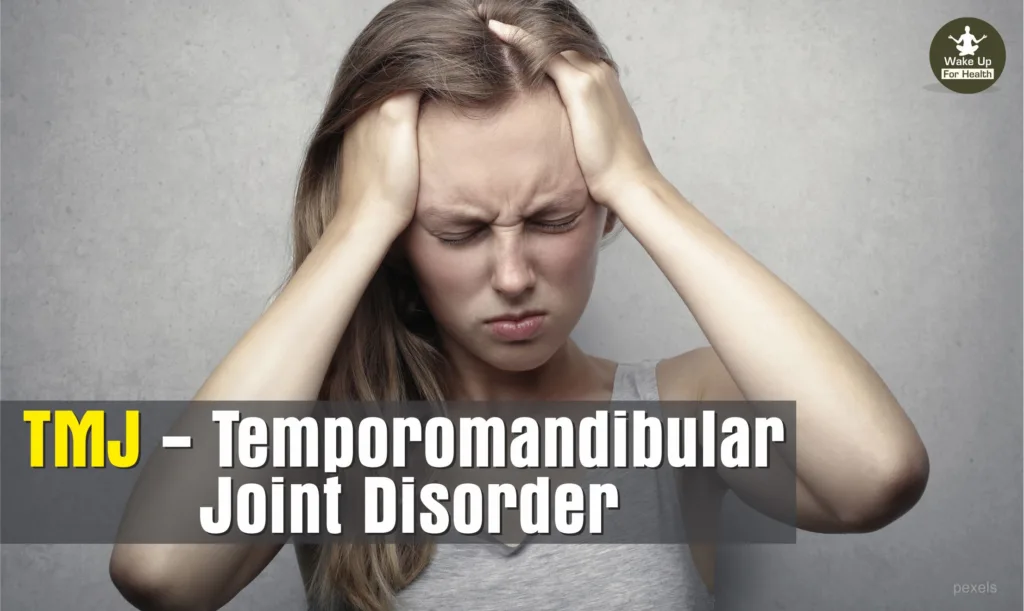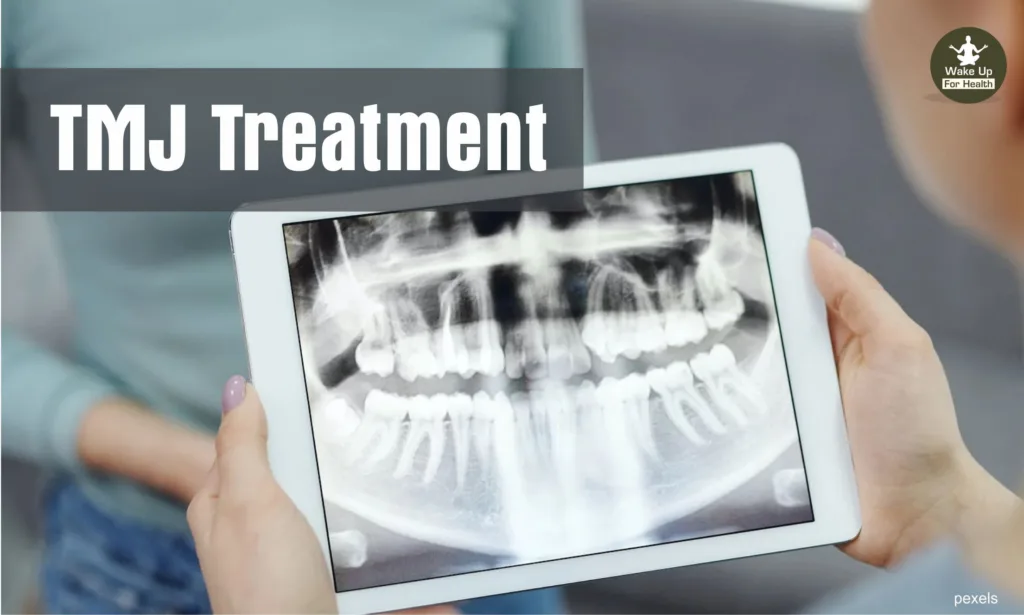The Temporomandibular Joint (TMJ) is the joint that connects the mandible (Lower Jaw) to the skull. This joint is near the ear canal on both sides of the head. Due to this joint, opening and closing of the jaw helps in speaking and eating. In this disorder, there may be pain on touch in the joints, facial pain and difficulty in moving the joints.

According to the National Institute of Dental and Craniofacial Research, about 10 million Americans have TMJ problems. TMJ is more common in women than men. This disorder can be treated, but its causes can vary, which is why it is difficult to diagnose.
Understanding TMJ Disorder
1. Signs and symptoms of TMJ disorders may include:
2. Jaw pain or pain on touch
3. Pain in one or both temporomandibular joints
4. Pain in ear and surrounding pain
5. Difficulty or pain in chewing
6. Pain on the face
7. Difficult to open or close the mouth
There may be a clicking sound near the jawbone when you open your mouth or chew something. But if there is no problem in the movement of the jaw, then there is no need for treatment.
TMJ (TemporoMandibular Joint) , Treatment Options
In many cases, the cause is not clear but an injury to the jaw or jaw joint may be the cause. Apart from this, there are some other health conditions that can trigger TMJ:
1. Arthritis
2. Joint wear and tear
3. Teeth grinding
4. Changes in jaw structure from birth
There are other factors that may be associated with the development of TMJ more often, but are not known for sure:
1. Using braces (a device used to align or straighten the teeth)
2. Bad posture that causes strain on the muscles of the neck and face
3. Prolonged Stress
4. Not taking the right diet
5. Not getting enough sleep
How Much You Aware About : Alzheimer’s Disease : Causes, Symptoms and Treatment. Why Alzheimer’s Attacks?
TMJ (TemporoMandibular Joint) : How it diagnosed?
Diagnosing a TMJ disorder can be difficult, as there are no standard tests for diagnosing these disorders. The doctor may refer you to a dentist or ENT specialist.
The doctor may perform a jaw checkup to check for symptoms of a TMJ disorder. Apart from this, the doctor can also take the help of imaging tests, which include:
1. X-ray of the jaw
2. CT scan of the jawbone to view the tissues of the bones and joints
3.MRI of the jaw to detect any abnormalities in the jaw structure
TMJ (TemporoMandibular Joint) : How it Treated?

In some cases, the symptoms of TMJ disorders may go away without treatment, but if symptoms persist, a doctor can refer you to a variety of treatment options.
A. Thru Medicines
1. Pain Relievers and Anti-inflammatories
If over-the-counter medications are not helping to relieve TMJ pain, a doctor may prescribe a high-dose pain reliever (such as ibuprofen) for a short period of time.
2. Tricyclic Antidepressants
These drugs (amitriptyline) are mostly used for depression. These are consumed in low doses, sometimes these medicines can also be used to relieve pain and overcome the problem of sleeplessness.
3. Medicines that relax the Muscles
These are called muscle relaxants, they are effective in curing the problem of muscle spasms. These types of drugs can sometimes be used for a few days or even weeks.
B. Thru Therapy
1. Physical Therapy
This is called physical therapy, in which exercises are done by professionals to strengthen the jaw muscles. Treatment includes the use of ultrasound, moist heat (a therapy used to relieve pain, speed up the recovery process, and relax muscles).
2. Counselling
Education and counseling can help you understand the factors and behaviors that increase pain, so you can avoid the factors that trigger pain.
Read Also : Psychological Stress | Psychological Effects of Stress | Ways to Relieve Psychological Stress
F.A.Q.
Q. How do you resolve TMJ?
A. Here are eight ways you can help relieve pain in your TMJ and manage symptoms without surgery:
- Maintain the resting position of your jaw.
- Correct your posture.
- Get a good night’s sleep.
- Use a hot or cold compress.
- Reduce stress.
- Exercise your jaw.
- Take notice of bad habits.
- Avoid certain activities and foods.
Q. Is TMJ a serious problem?
A. Left untreated, TMJ disorder can lead to significant health problems, including chronic pain and inflammation. It can also cause bite issues, tooth erosion and long-term conditions such as sleep apnea, insomnia, depression and anxiety.
Q. What will a dentist do for TMJ?
A. Treatment form an orthodontist can alleviate TMJ symptoms in many cases. If your TMJ comes from teeth grinding or clenching, your dentist may recommend that you wear a custom dental appliance. Often called a bite plate or a splint, this appliance will keep your upper teeth from grinding against your lower teeth.
(Disclaimer : The purpose of this health-related article is to wake you up and aware of your health and to provide health-related information. Your doctor has a better understanding of your health and there is no substitute for their advice.)
2 thoughts on “TMJ Disorder: Symptoms, Treatment Procedures, Side Effects”